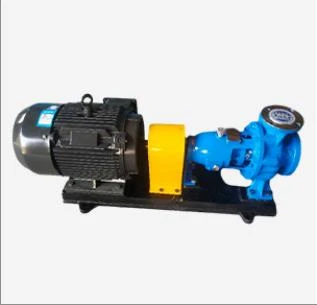English
- Afrikaans
- Albanian
- Amharic
- Arabic
- Armenian
- Azerbaijani
- Basque
- Belarusian
- Bengali
- Bosnian
- Bulgarian
- Catalan
- Cebuano
- Corsican
- Croatian
- Czech
- Danish
- Dutch
- English
- Esperanto
- Estonian
- Finnish
- French
- Frisian
- Galician
- Georgian
- German
- Greek
- Gujarati
- Haitian Creole
- hausa
- hawaiian
- Hebrew
- Hindi
- Miao
- Hungarian
- Icelandic
- igbo
- Indonesian
- irish
- Italian
- Japanese
- Javanese
- Kannada
- kazakh
- Khmer
- Rwandese
- Korean
- Kurdish
- Kyrgyz
- Lao
- Latin
- Latvian
- Lithuanian
- Luxembourgish
- Macedonian
- Malgashi
- Malay
- Malayalam
- Maltese
- Maori
- Marathi
- Mongolian
- Myanmar
- Nepali
- Norwegian
- Norwegian
- Occitan
- Pashto
- Persian
- Polish
- Portuguese
- Punjabi
- Romanian
- Russian
- Samoan
- Scottish Gaelic
- Serbian
- Sesotho
- Shona
- Sindhi
- Sinhala
- Slovak
- Slovenian
- Somali
- Spanish
- Sundanese
- Swahili
- Swedish
- Tagalog
- Tajik
- Tamil
- Tatar
- Telugu
- Thai
- Turkish
- Turkmen
- Ukrainian
- Urdu
- Uighur
- Uzbek
- Vietnamese
- Welsh
- Bantu
- Yiddish
- Yoruba
- Zulu
Telephone: +86 13120555503
Email: frank@cypump.com
Dec . 29, 2024 08:30 Back to list
rubber slurry pump
The Importance of Rubber Slurry Pumps in Industrial Applications
Rubber slurry pumps are vital components in various industries, particularly in mining, mineral processing, and civil engineering. These pumps are designed specifically for transporting abrasive and corrosive slurries, which consist of a mix of solid particles and liquids. The unique properties of rubber make it an excellent material for constructing these pumps, ensuring durability and efficiency in demanding environments.
Understanding Rubber Slurry Pumps
A rubber slurry pump is a type of centrifugal pump that utilizes rubber or elastomeric materials for its wetted components, including the pump casing, impeller, and liners. This construction allows the pump to resist wear and degradation from the harsh slurries they handle. The primary function of these pumps is to move slurries from one point to another, often against high head pressures and over considerable distances.
The design of rubber slurry pumps incorporates several key features to optimize their performance. These include a robust construction to withstand the abrasive nature of slurries, a high-efficiency impeller that can handle varying flow rates, and a reliable sealing mechanism to prevent leakage. The pumps can also be customized with different rubber compounds to match specific operational requirements, depending on the type of slurry being pumped.
Benefits of Rubber Slurry Pumps
1. Enhanced Durability Rubber is inherently resistant to wear and tear caused by abrasive materials in slurries, leading to longer pump life and reduced maintenance costs. Unlike metal pumps, which can corrode or pit over time, rubber slurry pumps maintain integrity in aggressive environments.
2. Corrosion Resistance Many slurries contain aggressive chemicals that can corrode metal components. Rubber slurry pumps can resist chemical damage, making them suitable for applications in industries like chemical processing and wastewater treatment.
rubber slurry pump

3. Energy Efficiency Rubber slurry pumps are designed to be energy-efficient, which can lead to significant cost savings over time. Their efficient hydraulic design allows for reduced energy consumption while maintaining performance, making them a preferred choice in many plants.
4. Versatility Rubber slurry pumps can handle a wide range of slurry types, including those with high solids content. This versatility makes them ideal for applications in various sectors, from mining and mineral extraction to construction and dredging.
5. Ease of Maintenance The design of rubber slurry pumps often facilitates easier maintenance and part replacement. Since the wearing components are typically made of rubber, they can be replaced with minimal downtime, ensuring continuous operation of the pumping system.
Applications in Various Industries
The applications of rubber slurry pumps are vast and varied. In the mining industry, they are commonly used to transport slurries from ore processing plants to tailings storage facilities. The ability to handle high solids content without clogging is crucial in these applications. Similarly, in mineral processing, rubber slurry pumps are essential for moving slurries during the extraction and refining processes.
In civil engineering, rubber slurry pumps play a critical role in foundation and tunneling projects, especially in dewatering operations where groundwater is extracted from excavations. Their effectiveness in handling abrasive materials makes them indispensable in these scenarios.
Conclusion
Rubber slurry pumps represent a crucial technology in many heavy-duty industrial applications. Their unique properties make them reliable and efficient tools for transporting abrasive and corrosive slurries. The benefits of using rubber in pump construction, such as enhanced durability, corrosion resistance, and energy efficiency, contribute to their widespread adoption in various sectors. As industries continue to evolve, the importance of rubber slurry pumps is likely to grow, playing an integral role in the efficiency and sustainability of industrial operations. Whether in mining, mineral processing, or civil engineering, these pumps are a testament to the advancements in pump technology designed to meet the demands of modern industry.
-
Horizontal Split Case Pump with GPT-4 Turbo | High Efficiency
NewsAug.01,2025
-
ISG Series Pipeline Pump - Chi Yuan Pumps | High Efficiency, Durable Design
NewsAug.01,2025
-
Advanced Flue Gas Desulfurization Pump with GPT-4 Turbo | Durable & Efficient
NewsJul.31,2025
-
ISG Series Vertical Pipeline Pump - Chi Yuan Pumps | Advanced Hydraulic Design&Durable Construction
NewsJul.31,2025
-
ISG Series Vertical Pipeline Pump - Chi Yuan Pumps | Energy Efficient & Low Noise
NewsJul.31,2025
-
pipeline pump - Chi Yuan Pumps Co., LTD.|High Efficiency&Low Noise
NewsJul.31,2025










